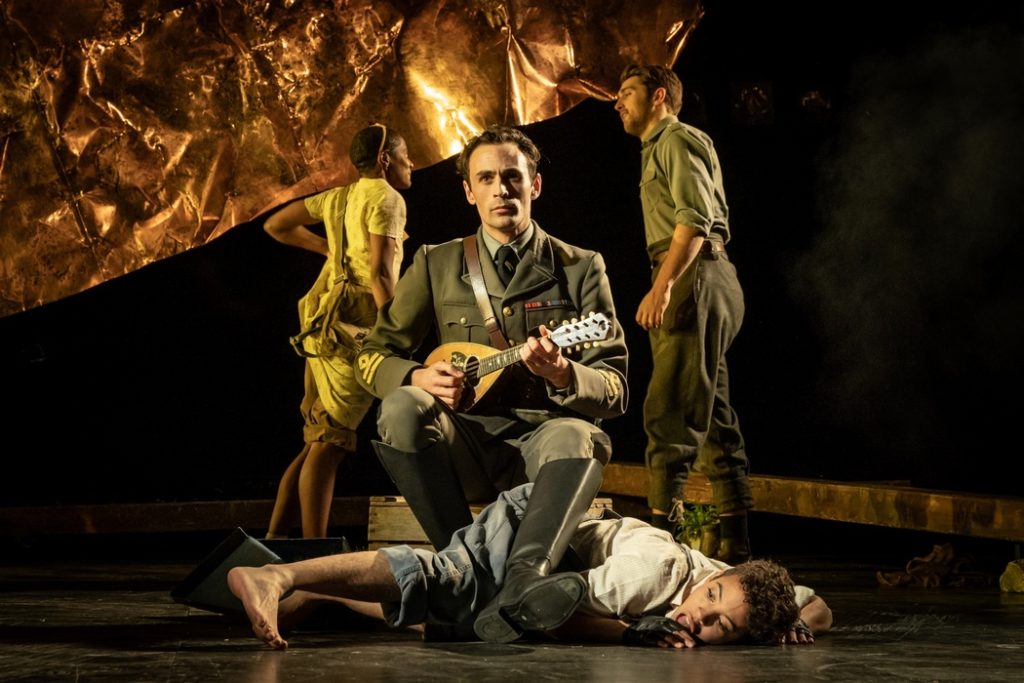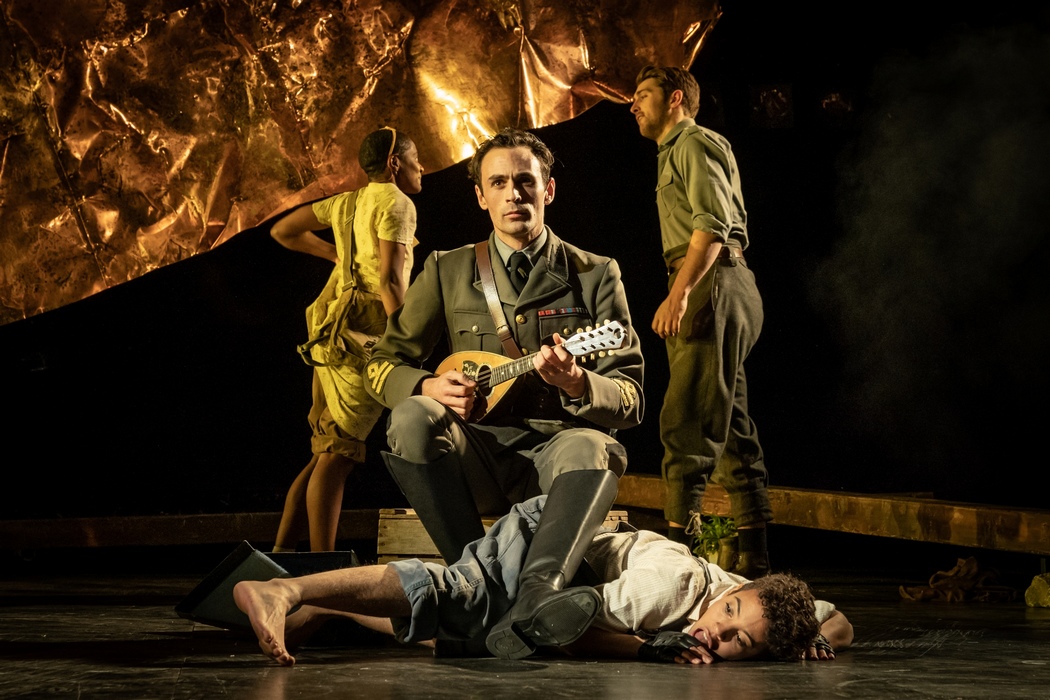
In Louis de Bernières’ epic tale of love and war set in the Greek island of Cephalonia during the Second World War, he seeks to make the social every bit as important as the political history. Within the grand sweep of military operations are the lives of ordinary people caught up in events, often not of their choosing. In a quote, de Bernières describes his novel as ‘what happens to the little people when megalomaniacs get busy. In 2019 we still cling to the hope that the current crop of despots remain restrained. Captain Corelli’s Mandolin is a shocking reminder that when political checks and balances are removed, lives inevitably suffer.
The staging of the story is a hugely ambitious project. A lengthy backstory involving the Mussolini-led Italian army invasion of Albania, beaten back by the Greeks, before the Germans crush any resistance, takes up a big slice of the first half of director Melly Still’s production. Corelli has a long wait before his first appearance.
Initially, we are transported to the rural idyll that is home to Dr Iannis and his daughter Pelagia. There was some charming work by Luisa Guerreiro as the family goat, trotting around with suitably goat-like movements and ‘Shaun the Sheep’-like bleats. Joseph Long delivered a memorable performance as the cultured doctor, bringing depth to his humanity and fatalism.
Madison Clare has the challenging role of Pelagia, a young woman who has learned to hone her skills as a medic with the help of her sympathetic father. While she harbours dreams of her own career she meets Mandras (Ashley Gayle), a local fisherman, and they become engaged before the outset of war finally drives them apart. Perhaps Clare was keen to show a little reticence in Pelagia’s affections given Pelagia’s ambitions for her own trajectory. Whatever the reason, the chemistry between her and Mandras, and later with the dashing Corelli, failed to convincingly ignite.
Alex Mugnaioni as Corelli, when he finally arrives on the scene, fills the stage with his bonhomie, his delightful mandolin playing and his insistence that every morning start with a song. Put that on your ‘to do’ list! Corelli is the antithesis of a soldier – he’s friendly, empathetic, sympathetic, he listens, he’s polite – and in the end he is both brave and lucky. For author De Bernières, it is Corelli who utters the cri de coeur, who is the complete human being standing up to tyranny with kindness and song.
There were powerful performances by Eve Polycarpou as Mandras’s mother, her cries of anguish resonating through the auditorium; and Ryan Donaldson as Carlo, whose final words to Corelli are grade A tear-jerkers.
Standing at the rear and centre of the stage, designer Mayou Trikerioti’s imposing beaten copper panel serves as the target of special lighting effects. We first see it covered with gently rippling water effects as if we are gazing down into the crystal-clear Ionian Sea. But later it sparks kinetically as bullets fly between the Italians and the Greeks, exploding into vivid reflected light when shells and bombs shatter the peace. In a final twist, it becomes a livid cascade of falling lights as the earthquake of 1953 devastates the island.
Director Melly Still keeps the action rolling breathlessly throughout, occasionally impacting on how deeply the actors could explore their characters’ inner lives. The sudden leap forward post war was very well observed. As Corelli and Palagia are finally able to share some meaningful silence with one another, the play felt complete. ★★★★☆ Simon Bishop 15th May 2019


